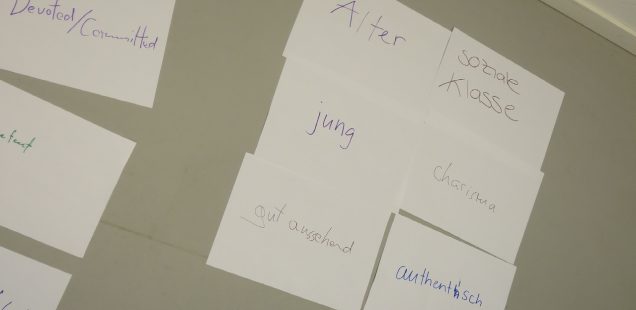
Address!
Developing including measures for candidates and students with migration experience and other non-normative backgrounds for the bachelor degree course Art Education at the Zurich University of the Arts ZHdK
In cooperation with Bachelor Art Education ZHdK (Peter Truniger)
Data gathering and analysis: june–december 2017. Most important findings and first ideas for measures (in German)
Research team: Sophie Vögele (head of project), Gianna Brühwiler and Şebnem Efe
Elaboration of measures: January–June 2018 in cooperation with faculty BAE
We were able to assess that among the students of the ZHdK as well as within the Bachelor Art Education, people with migration experience were under-represented (see RESEARCH PURPOSE Art.School.Differences. Also see the slides to the talk Exclusion inside out at the PARSE conference). The aim of the project ‘Address’ thus focusses structural barriers that are at work for students with non-normative backgrounds. In dialogue with students and faculty we develop measures that allow for a more attractive and inclusive degree course in Art Education, which addresses students with migration experience as well as non-normative careers.
Applying the methods of interviews, participatory observation, team- and action-research, we identify needs candidates and students with migration experience or from non-normative backgrounds may have. The strategies students have developed so far are key to our findings and help to determine possible measures for the recruitment of non-normative candidates. Thereby, adaptations of the website and the tools to convey information, as well as the creation of contact points are discussed. Furthermore, changes allowing for a more inclusive or flexible structure of the curriculum or degree requirement are analyzed.
The aim of the investigation is to find out about structural and representational changes, to be able to directly address and target candidates and students with migration experience and non-normative careers, and to, togehter with faculty and administrative staff, initiate a process of a continuous consideration of the dominant structures and how these could be improved to more inclusivity.
The most important findings (in German) include propositions of which some have already been put into practice in the BAE.
Further development of measures as well as sensitization and encouraging of a process of further discussions and sustainable development in cooperation with faculty and administrative staff have been put in practice in 2018 (see. the contribution Zugang und Teilhabe am Hochschulstudium in German). Currently the realization of incisive curricular measures is adjourned due to a major reorganization of the entire department.
